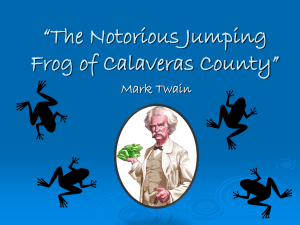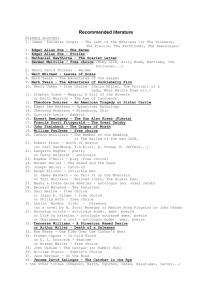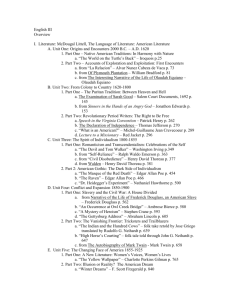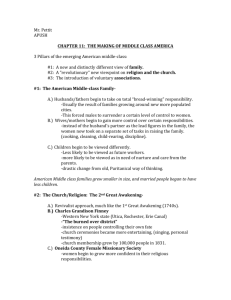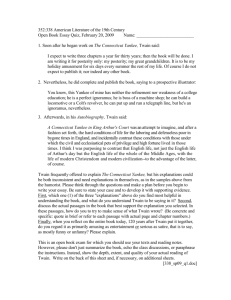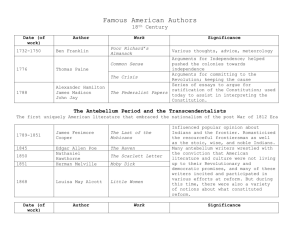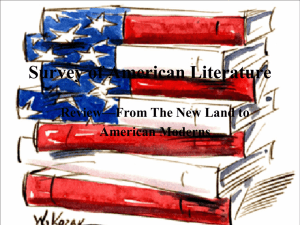Division, Reconciliation, and Expansion
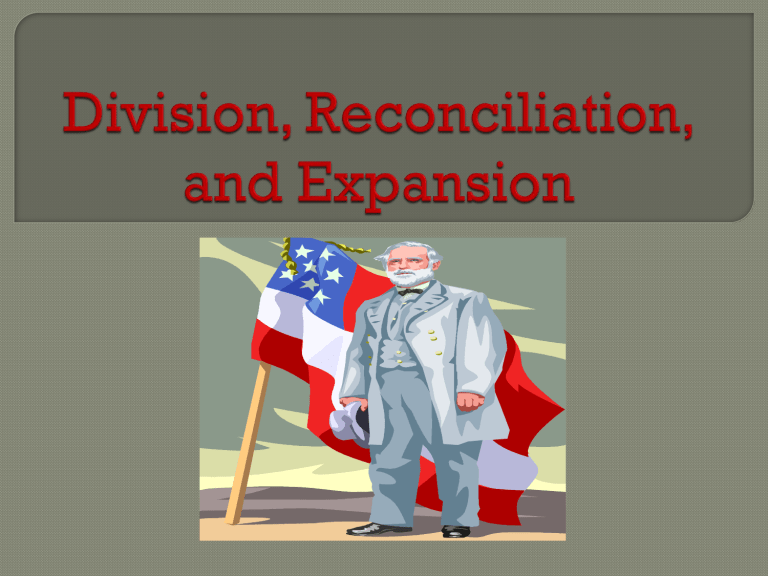
North- Education, Banking, Science and
Reform movements
South- Slow paced, Rural, with
Agricultural movements
Controversy of slavery influenced the literature of the day.
Lincoln elected, South Carolina and 6 others seceded from union to form
Confederate States of America.
War lasts 4 years, North wins, 620,000 dead.
Lincoln is assassinated on April 15, 1865
½ million farmers (including many emancipated slaves) move west due to
Homestead Act
Miners moved west aided by completion of Transcontinental Railroad in 1869
1890- Frontier seized to exist as
Westward expansion grew
Native Americans were forced into territories set aside by Congress
Electricity sparked many new inventions
Immigration increased the population by
15 million in just 20 years
Many urban families were poor and had to result to child labor, while some
Corporation owners made large fortunes.
Mark Twain dubbed this the “Gilded Age”
Laborers, African Americans, and Women pushed for more rights and labor reforms.
Slaves developed a unique type of music called “Spirituals”
Frederick Douglass published his autobiography “Narrative of the Life of
Frederick Douglass” that was also an indictment of slavery
Thousands of Diaries, letters, and journals were published from the war
Many of President Lincoln’s speeches and letters were published such as the
Gettysburg Address
As westward expansion grew, more literature was rising from the West and
Midwest
Mark Twain grew up in Missouri but moved to Nevada during the civil war
Not all frontier writings for European settlers, Mexican Americans also published many songs and ballads.
A reaction to romanticism that reflected the harsh reality of frontier life and the author’s reactions to the civil war
Realism began shortly after the civil war
The loss of U.S. lives shattered the nation’s idealism
Young writers turned away from romanticism focusing on “real life”
Writers began focusing on life as ordinary people lived it
They attempted to show characters and events in an honest, objective, almost factual way
Loneliness and cultural isolation are a common theme
Naturalist writers also depicted real people in real situations, but they believed that forces larger than the individual shaped our destiny
Forces: nature, environment, fate, heredity
Naturalists depicted harsh realities because their hardships influenced their writing and artistic vision
Social discontent grew out of our nation’s industrialization
Kate Chopin: wrote about women’s desire for equality and independence
Naturalists saw industrialization as a force against which individuals were powerless
By 1914 America and it’s literature had grown up and traded it’s ideals for pragmatism (practicality)
30 Thousand copies of The Adventures of
Huckleberry Finn were released in 1885
He used 7 different dialects to portray the speech patterns of different characters
Twain held very strong opinions of a variety of subjects
Twain was one of the first authors to capture the every day speech of characters, and not the more formal, standard English that other writers used
